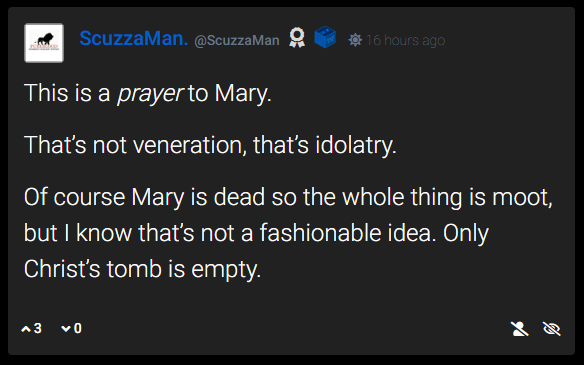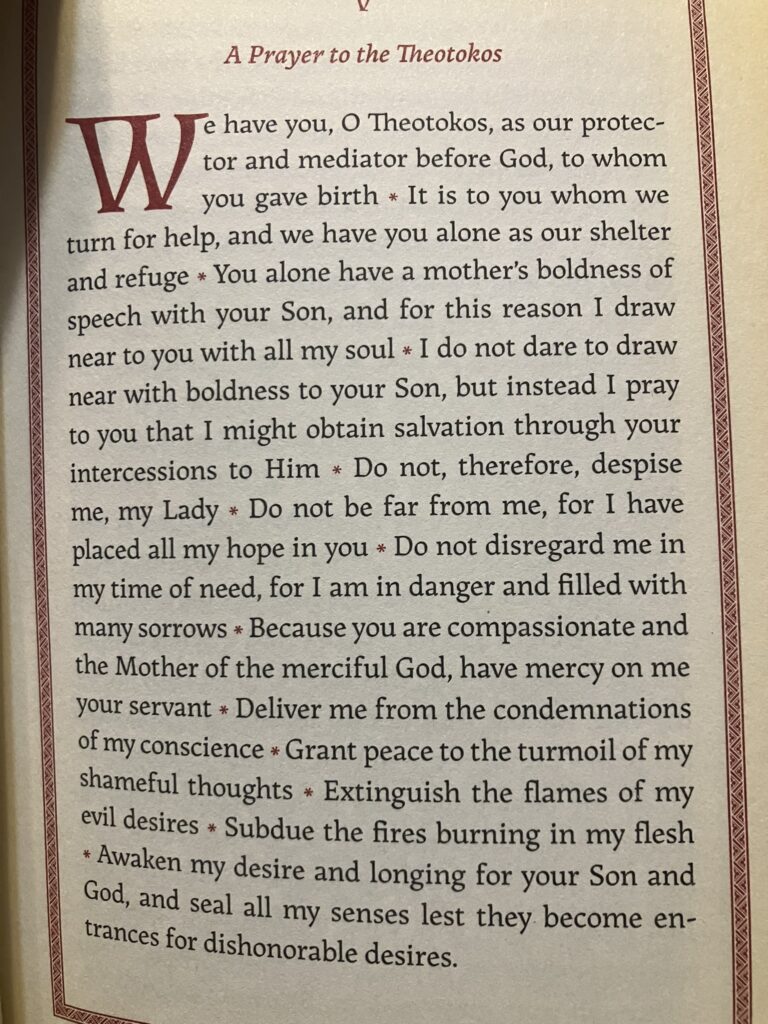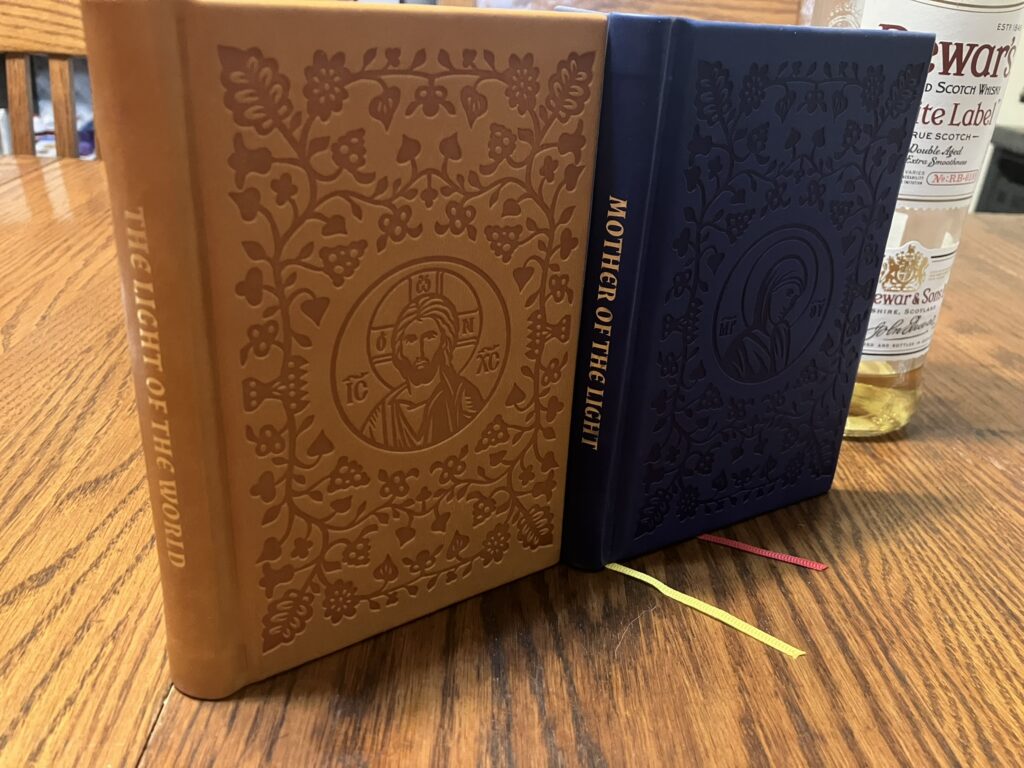A Seventh-day Adventist gentleman who uses the handle @ScuzzaMan posted the pictured post on SocialGalactic in response to an image that I shared. As a former Seventh-day Adventist myself, I can understand exactly where he is coming from. Many times when we Orthodox are asked by Protestants about praying to Mary, the Theotokos, we might say that we do not pray to her, but we ask for her intercessions. What we mean is that our prayers to the Theotokos are of a qualitatively different sort than our prayers to Christ, and that we do not worship the Theotokos. However, Protestants are unlikely to understand what we mean when we say this. If I say I do not pray to the Theotokos, and then a Protestant sees on my bookshelf the prayer book Mother of the Light, which exclusively features prayers and hymns to the Theotokos, he is far more likely to conclude that I am a liar than to understand what I actually meant. I think there are better ways to speak about this.
Of course, the first thing though is to determine if you should talk about it. If the interlocuter is not actively seeking to understand the Faith or at least to understand your faith, its probably better not to engage. Arguments and debates over spiritual topics are often not edifying or profitable.
However, if you decide to discuss the issue, this seems to me a better way to communicate with those coming from a worldview like ScuzzaMan. In ScuzzaMan’s first two lines, he implicitly links prayer with idolatry. This is an incorrect linking that should not be allowed to pass without comment. According to Merriam-Webster, idolatry is “the worship of a physical object as a god.” While these physical objects can occasionally be natural, they are almost always man-made. Although it is probably unnecessary, I will point out that the Theotokos is not a physical object. Neither are Thor, Odin, the Atman, or Brahman. Someone who worships a false god, such as Odin, is not by definition practicing idolatry. This does not mean that it is proper to worship a false god, or even to worship the Theotokos. As Orthodox Christians, we worship only the All-Holy Trinity.
Another false assumption implicit in ScuzzaMan’s linking of prayer to idolatry is the assumption that prayer is worship. This assumption is also false, which should be obvious but is missed by some due to the liturgical use of archaic language. When we say to God “hearken unto me, I pray Thee, and have mercy,” we really aren’t saying anything that a peasant might not have said to a judge a few centuries ago when that was the vernacular. Yet we can all recognize that the peasant in that situation would not be worshiping the judge. According to Merriam-Webster, “pray” means to entreat or implore, not to worship.
And this brings us to how the misunderstandings ScuzzaMan articulates in his final three lines really underlie the misunderstandings in his first two lines. If he understood that the Theotokos is alive, he would be able to understand why we ask (pray) for her help. Likewise, if he understood that Saint Phanourios is alive, he would not think it any odder to ask Saint Phanourios for help finding his car keys than he would think it to ask his brother. As a Seventh-day Adventist, ScuzzaMan holds a view of death and the afterlife that is foreign not only to early Christianity, but also to the Jewish and Mohhamadean religions that Seventh-day Adventism borrows so heavily from. In fact, he holds this Thnetopsychism so dearly that he states “Only Christ’s tomb is empty,” explicitly denying the testimony of Matthew 27:52-53, Hebrews 12:1, and Jude 1:9. While Seventh-day Adventists teach this openly, even most Baptists, who ostensibly believe in an immortal soul, seem to believe it implicitly.
This is why I think it better, when we are asked about praying to the Theotokos or the saints, not to try to explain how such praying differs from our prayers to the All-Holy Trinity, but rather to talk about how such prayer is similar to our prayers to our living relatives, friends, and associates. When a Protestant accuses you of idolatry for praying to the Theotokos, stating you also pray to your children is more likely to get his mind working than saying that the way you pray to the Theotokos is different than the way you pray to the Trinity. If he thinks it ridiculous to ask Saint Phanourios for help finding your keys, but thinks it reasonable to ask your son for the same, you can be assured that he is operating from an assumption of Thnetopsychism, even if he ostensibly believes in conscious souls.


